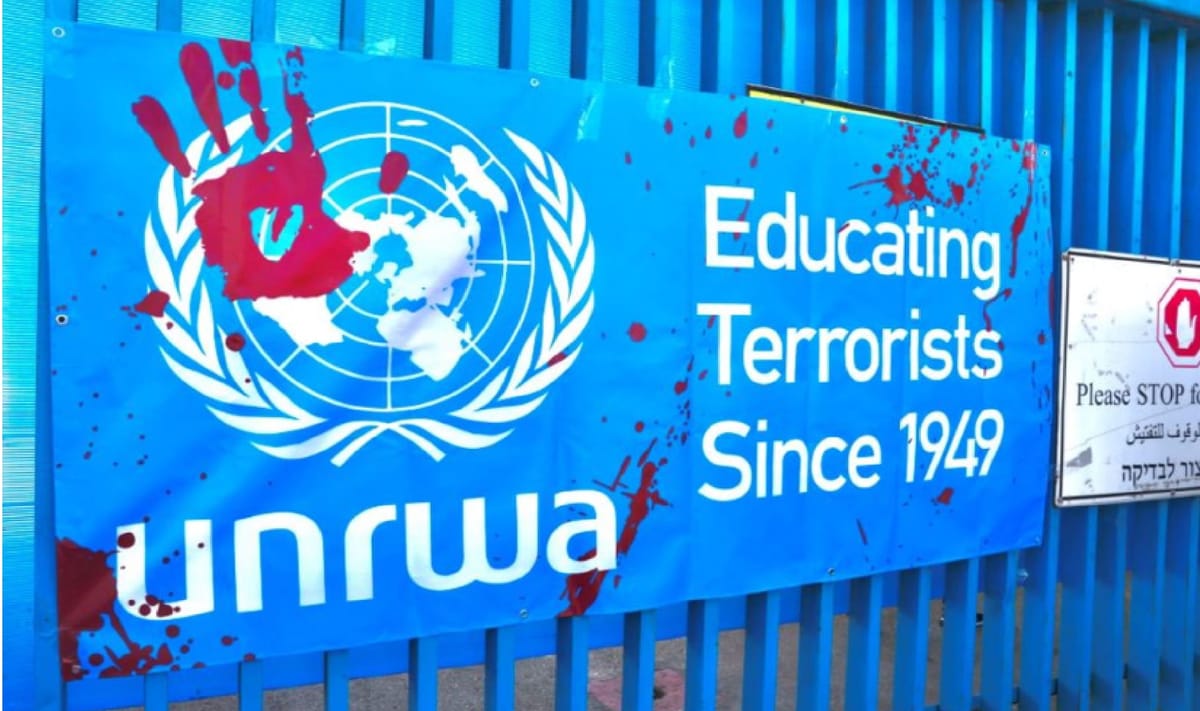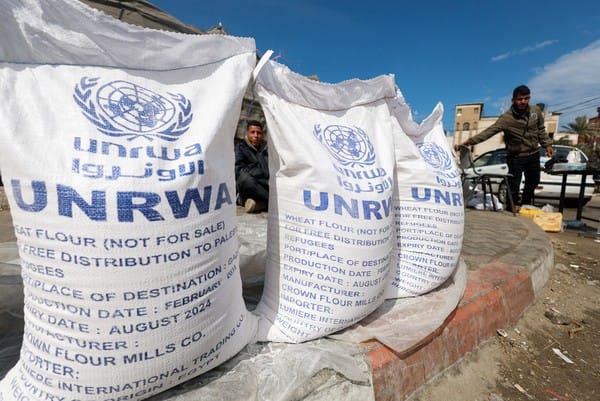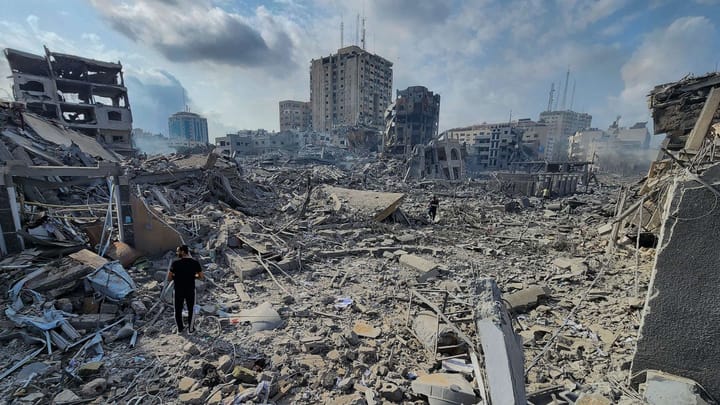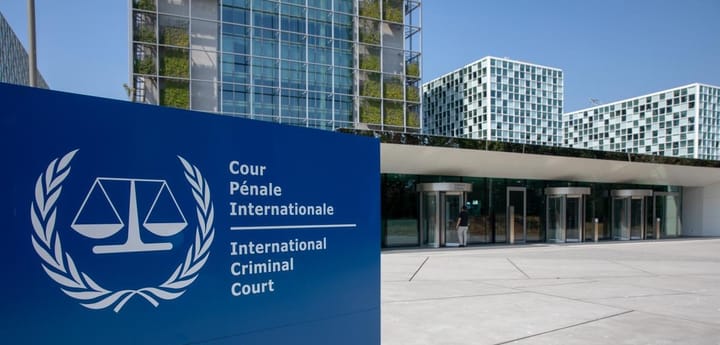Three Reasons the Old UNRWA Must Be Abolished for Something More Practical & Efficient To Replace It.

The United Nations Relief & Works Agency for Palestinian Refugees in the Near East (UNRWA) must be abolished for three reasons - (1) it is outdated as a relief agency in the current global order, (2) it keeps Palestinians in a vicious cycle of disadvantage which leads to radicalization, and (3) it is an obstacle to Palestinian statecraft incubation. Based on these pointers, UNRWA must be abolished, but in its stead, there should be an agency that is responsive to the genuine needs of individual Palestinians and the collective goals of the Palestinian people. This article explores three fundamental reasons why UNRWA is an untenable institution in our times.
1 – UNRWA’s Mission & Model is Outdated in the 21st Century
International relief agencies around the world are pervasive and numerous. In the current international order, the UN General Assembly allows states to collectively establish subsidiary organs to carry out specific functions. Many agencies have been formed by the UN to carry out specific purposes and functions. However, they are always created for specific goals and ends. UNRWA is unique in many ways – and therefore inherently problematic.
First of all, the Palestinian refugee crisis occurred at a point in history where the international political order was being redesigned. In the period between 1919 and 1949, the global order transitioned from empires to states. Thus, many independent states were carved out of colonial empires and the citizens of these new states exercised their right to self-determination and determined their future.
No less than 40 states declared independence from the British Empire after 1945. Most of the people in these former colonies became citizens of the new states that emerged. A few of them retained their British citizenships and others got cross-nationalities by being relocated through various arrangements to new states or territories.
The Palestinian people could not fit into any of the common arrangements of statehood. Thus, they became official “refugees”. However, in reality, they are in that condition because they are “stateless”. They are neither citizens of Israel, the British Empire, or any Arab state, nor can they claim Ottoman citizenship. UNRWA’s existence means they are given a broad label of “refugees” which is quite problematic when compared to other war zones.
Refugees around the world are recognized because of a specific war that has either displaced citizens of one state to another or within their own state (which makes them internally displaced persons or IDPs). Thus, a UN agency gives the refugee targeted care on the assumption that they will go back to their country and start a new life.
The conventional practice of refugee law indicates that host states can grant refugees citizenship after they meet certain conditions. However, with the presence of a group like UNRWA, Palestinians are never assimilated into any country. On the other hand, the conflicts on the path to Palestinian statehood are somewhat limited.
In Arab states, Palestinian refugees are denied a pathway to citizenship, and often granted temporary or informal residency in these countries[1].
UNRWA’s fundamental premise and assumptions of functioning are, therefore, problematic at the very least. That is because they impress the label of “refugees” on Palestinians in ways that do not resolve the primary issue of their “statelessness”.
UNRWA is the only refugee agency in the world focusing solely on one distinct group. And its mandate goes beyond the normal elements of relief to include education, health care and social services to Palestinians. Thus, UNRWA is destined to go beyond its functions as an independent international agency – to play roles that a national body should play. There are no calls for separation of powers or independence or accountability beyond formal standards which are often vague.
The strictures in UNRWA open the floodgates for limited accountability, corruption, waste, and a diversion of focus from the body's main goals as a relief agency. Over the years, UNRWA has been criticized for its inflexibilities and internal ethical malpractices, which render it outdated and inappropriate for the 21st Century.
2 – UNRWA Puts Palestinians in a Vicious Cycle of Disadvantage which Leads to Radicalization & Violence
As a refugee relief agency, UNRWA is not in a position to give Palestinian refugees an ideal life. Since these refugees are stateless and are barred from gaining citizenship in their neighboring countries, UNRWA’s support is bound to be less than ideal for the average person. This leads to a cycle of disadvantage. In some refugee families, seven generations or more have lived on aid from UNRWA.
No refugees anywhere have lived in such disadvantageous situations for so long. That is because every refugee agency works on integrating the refugees into some kind of state structure to build a life. Countless wars were fought in and around the Israeli War of Independence, which led to the displacement of most of these Palestinian refugees dependent on UNRWA aid. However, most of them have been absorbed into some state structure.

In effect, the existence and limited operations of UNRWA have put ordinary Palestinian refugees in a Kafkaesque situation. They cannot get a full existence because of the refugee label, and they cannot gain full citizenship elsewhere to get a decent life. Thus, UNRWA keeps them in a cycle.
Naturally, when people are put in an oppressive situation, they will want someone to blame. And in this case, the most convenient person to blame is Israel. This is something UNRWA is not known to oppose. On the contrary, UNRWA is weaponized by radical Palestinian groups to encourage incitement and hate against Israel.
Schools funded by UNRWA are openly responsible for teaching Palestinian students about how to harm Israelis and commit genocide against them. It is, therefore, not surprising how Palestinian youth engaged in the massive killing and abduction of Israelis on October 7, 2023. This did not happen in a vacuum. A British MP reported:
“Palestinian children have grown up in an environment of institutionalised radicalisation.
In schools named after suicide bombers, schoolchildren are taught from the age of six that Israel is a temporary construct that will,
“disappear as the fog over the sea”.
…Eight-year-olds learn poetry from the following verse:
“I vow I shall sacrifice my blood, to saturate the land of the generous and will eliminate the usurper from my country, and will annihilate the remnants of the foreigners.””[2]
This is done with money from US taxpayers, who fund UNRWA in its current forms. The lack of accountability for UNRWA is apparent in such actions and processes, thereby justifying the need to significantly restructure the Agency.
Extract of Interviews with Children in UNRWA Schools
In another quote, an MP in the British parliament restated the words of Mahatma Gandhi in the context of Palestinian school textbooks created under the watch of UNRWA:
“If we wish to create a lasting peace, we must begin with the children.”[3]
Thus, any attempt to develop an appropriate state that Palestinians can integrate to must be done without UNRWA which has become complicit in radicalizing Palestinian children from an early age.
Radicalization is institutionalized, and this was done under the watch of UNRWA. These failures of UNRWA show that they actively contribute to the cycle of keeping Palestinians impoverished. It does not end there – they shift the blame in one direction and accuse Israel, which leads to perpetual radicalization.
3- UNRWA is an Obstacle to Palestinian Statecraft
Going back to the discussion of the disintegration of empires at the time of Israel’s founding, many states and nations broke out of British rule and did great things. Palestinians and Israelis were both under British rule—just like Qatar and the United Arab Emirates.
Qatar and UAE, both considered part of the Trucial states who were protectorates of the British Empire, had modest developments at the time of the Israeli War of Independence in 1948. It took another 23 years before Qatar and the United Arab Emirates gained independence. However, in the absence of a state like Israel to blame perpetually, Qatar and the Emirates focused on their inner strengths and developed like any other country.
The level of aid pumped into Palestinian camps by UNRWA before Qatar and the UAE declared independence was enormous. However, this left the Palestinians with a sense of victimhood and perpetual dependence on foreign aid. On the other hand, Israel became an imaginary obstacle that caused Palestinians to suspend everything, thereby remaining impoverished and dependent on aid.
Incitement and Israel hate replaced statecraft and the development of a national identity. This trend continues to haunt Palestinians to this day.
The journey towards a Palestinian state started in 1994 after the Oslo Accords cannot be attained when power is divided into three:
1. The Palestinian Authority
2. UNRWA, and
3. Hamas/other militant groups.
As long as UNRWA provides necessities, there is no motivation to create a thriving economy based on any productive venture. What you learn when you have an agency like UNRWA is that victimhood pays. There are poor developing countries that export far more modest materials to international markets. And in many ways, the aid Palestinians gain through UNRWA and other entities far outweighs these independent states’ international trade and foreign exchange.
A Palestinian state cannot be incubated if UNRWA continues to thrive in its current form. The only way out is for UNRWA to be replaced withthat export far more modest materials to something more practical and supportive of Palestinian state incubation. In the absence of that, Palestinians will have no motivation to build a state and live side-by-side with their Israeli neighbors.
The Way Forward
The assumptions used to create UNRWA are outdated and do not apply to the contemporary international order. Thus, it is necessary to abolish UNRWA.
After the current Gaza War, a lot will be set to change in Palestinian territories. Hamas is likely to become more weakened than ever. A unique opportunity will arise for a broader-based governance structure for the Palestinian people.
It is an undeniable fact that many Palestinians in Gaza and the West Bank will need some form of support and aid.
UNRWA’s system centralizes power in the hands of a few elites. And these elites steer the association in a direction that encourages violence that stands in the way of peace. Therefore, a unique opportunity will exist for a decentralized aid deployment to the Palestinian people. This could benefit from the following pointers:
1. The Recognition of Palestinian Families & Traditional Leaders as Units for Aid Distribution: A mechanism of recognizing Palestinian families and traditional leaders must be undertaken. The end goal should be to create functional and productive families and communities that will break out of the cycle of aid dependence. Recognition of genuine needs and individual circumstances can help provide targeted aid distribution with rewards for efficient and effective behavior that breaks the cycle of disadvantage.
2. A Regional Underwriting of Palestinian Statecraft Transition: A major body in the region can and should play a role of broker to facilitate the creation of structures for a Palestinian state. This body, whether the Gulf Cooperation Council, Arab League or similar entity, will gazette and recognize traditional and religious leaders at the lowest level of Palestinian society to the top and effectively distribute aid to them.
3. Creation of State Structures, Separation of Concerns & Transparent Accountability Standards: Technocrats and other essential arms of a future Palestinian state must be recognized and given tasks in state-building. However, they must balance activities and work according to transparent standards throughout the Palestinian territories.
4. Restructuring the Aid and Funding of Vital Social Institutions: A new arrangement should be made to provide aid for various Palestinians. This will include education and other services that will be free from radicalization tendencies.
5. Israeli Participation & Coordination in the Evolution of a Palestinian Statecraft: Israel will remain a neighbor to a future Palestinian state. As such, the process of providing aid and coordinating affairs to create vital institutions must be done with the involvement of Israel.
Conclusion
UNRWA, in its current form, has no place in a future that will discourage terrorist acts like the October 7 massacres. The assumptions used to create UNRWA are no longer applicable in our modern dispensation. UNRWA puts Palestinians in a vicious cycle of disadvantage, which leads to radicalization and violence. Such trends also prevent the establishment of a future Palestinian state. The more responsible thing to do is to create a new mechanism that will provide aid directly to people at the lowest units of society – families and religious leaders, and recognize these leaders alongside technocrats and other groups essential to statecraft. Through this, new systems of providing aid, and building more responsible school systems will benefit the Palestinian people. This will help in incubating a Palestinian state system. The role of neighboring states and blocs like the GCC and Arab League are essential. This should be done in collaboration with Israel as a neighboring state.
[1] Charlotte Lysa. “Governing Refugees in Saudi Arabia (1948–2022)” Refugee Survey Quarterly 42 (1) 2023 pp1-28 DOI: 10.1093/rsq/hdac027
[2] UK Parliament. "Palestinian School Curriculum: Radicalisation" Volume 673: debated on Tuesday, 10 March 2020. Available at: https://hansard.parliament.uk/commons/2020-03-10/debates/C9D591A4-1B68-4D6B-8AD3-5BBC90398051/PalestinianSchoolCurriculumRadicalisation
[3] UK Parliament. "Palestinian School Textbooks: EU Review" Volume 698: debated on Wednesday, 30 June 2021. Available at: https://hansard.parliament.uk/commons/2021-06-30/debates/E477230F-58A0-4C3F-A6C5-43F42D330043/PalestinianSchoolTextbooksEUReview




